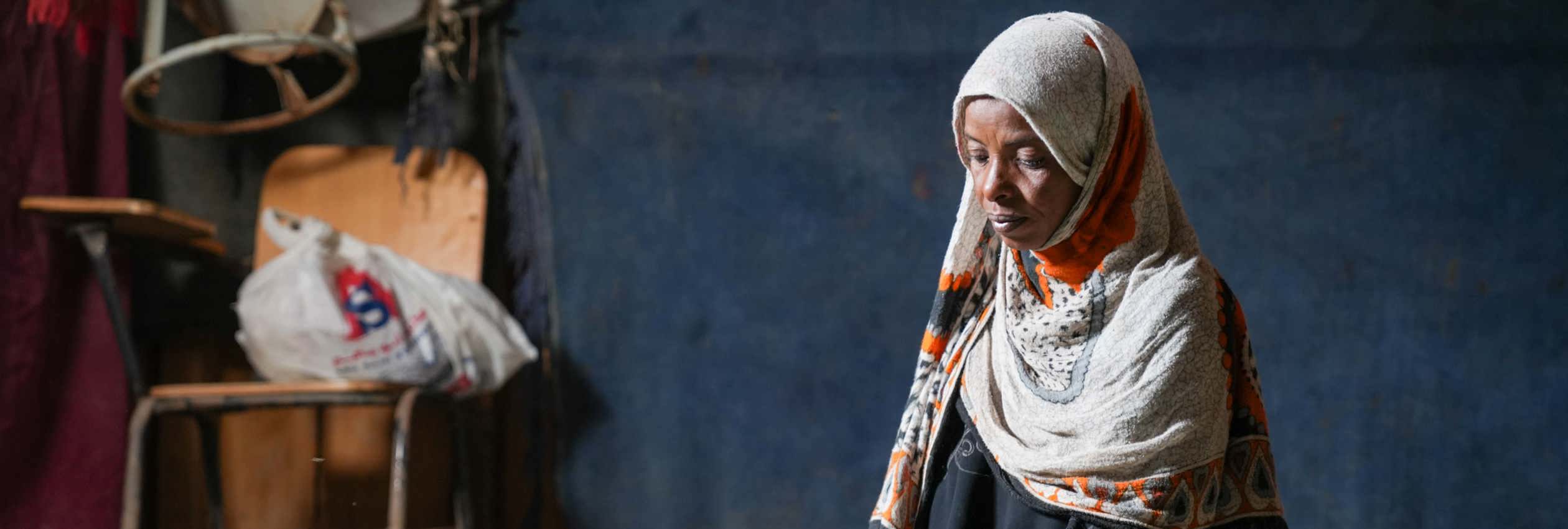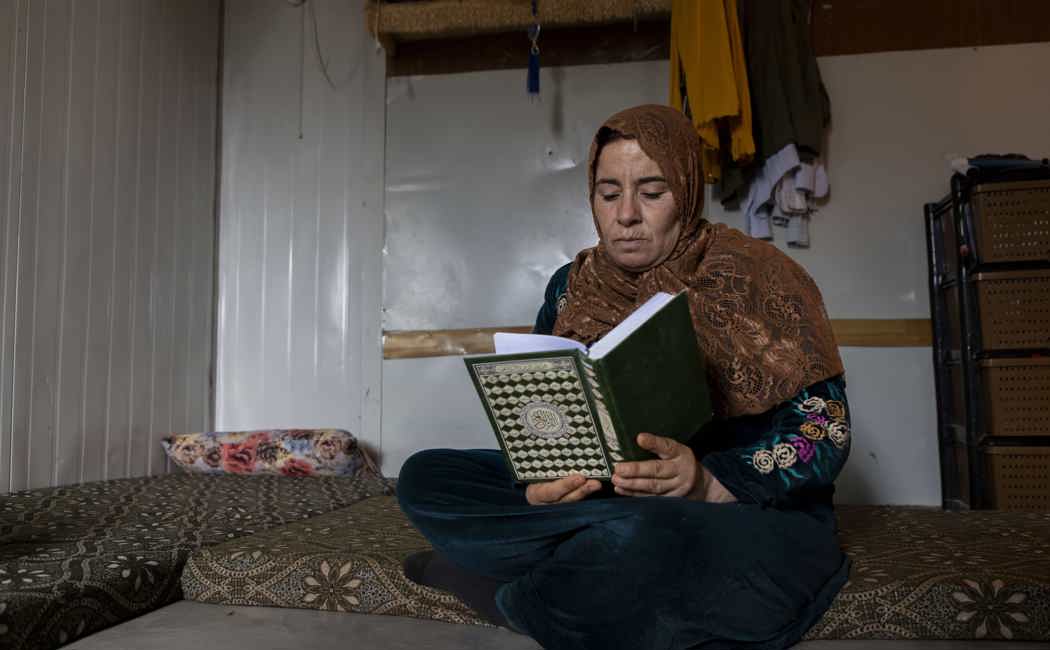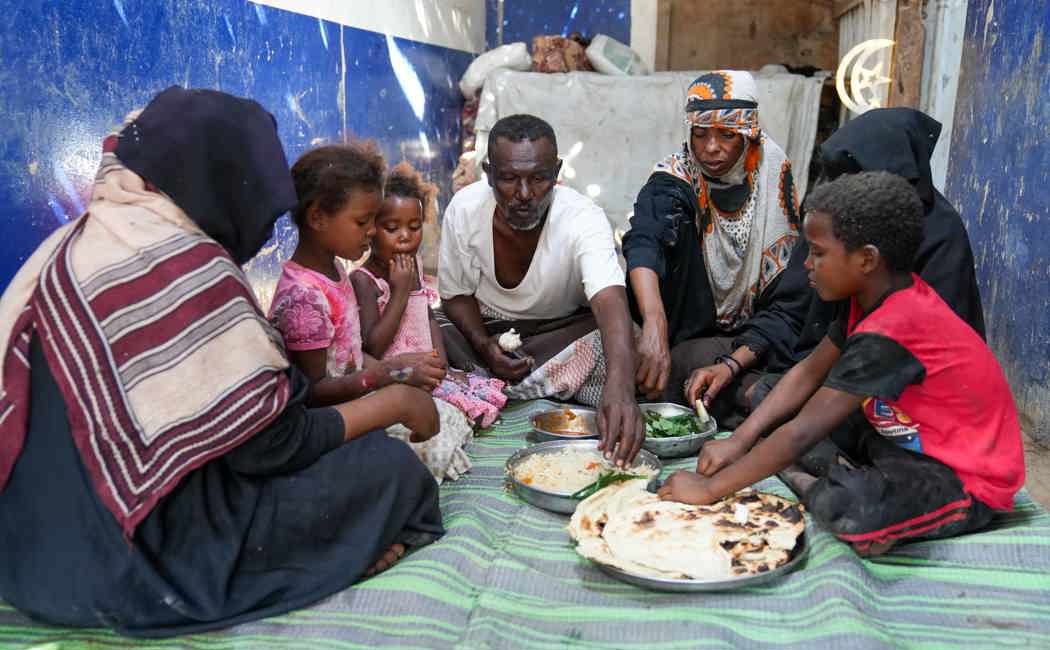Asad fled his home in Myanmar and now lives in Kutupalong refugee camp. He and his family are among almost one million Rohingyas reigsted with UNHCR in Cox’s Bazar, Bangladesh.
The situation is dire. Camps are overcrowded with shelters made of bamboo and tarpaulin, offering little protection from harsh weather conditions. Communities lack access to clean water or proper sanitation leaving families at high risk of diseases such as cholera. There are also very limited opportunities for work and education in the camp.
Last year, food rations were cut twice due to lack of funding. This means refugees have just $12 per month to spend on food – or 40 cents per day.
“In Myanmar, we made it through Ramadan with the little money we had. We could have fish, meat, milk and bananas to eat at midnight before we started our fast. But ever since we came to Bangladesh, we could not afford much.”
Asad and his family are observing the holy month while facing hardship, poverty and uncertainty. Despite this, they continue to spend time in prayer for their needs and that of others.
“I pray to God for Rizq, for my needs and that of my children and for the safety and health of those who are unwell all over the world.”
What is Ramadan Charity?
For Muslims around the world, the month of Ramadan is filled with days of fasting, prayer, charity and iftar meals with friends and family. While it is a joyful time for most, refugees and displaced people are struggling to celebrate, having been forced to flee their homes and losing loved ones. Many are unable to provide for their families and put food on the table for iftar.
Muslims are encouraged to be generous to those in need during the holy month. The rewards for giving in Ramadan are believed to be multiplied many times over. Giving can take many forms such as hosting iftars for those who are hungry, donating to the poor and helping in the community.
One type of Ramadan charity is Zakat, which requires financially capable Muslims to give at least 2.5% of their wealth to the less fortunate. Zakat is an important part of the Muslim faith and one of the five pillars of Islam.
How can you help refugees during Ramadan?
By donating your Zakat to Australia for UNHCR, you can provide cash assistance to help vulnerable people pay for rent, food and medicine.
UNHCR’s Refugee Zakat Fund is compliant with Islamic principles. 100 per cent of your Zakat is given to refugees and displaced families, providing them with comfort and hope during these challenging times.
“It is in difficult times like these that we must be reminded of the power of a community standing together. This Ramadan may our collective strength echo louder than the despair that seeks to silence hope,” says UN High Commissioner Filippo Grandi.
In 2023, Zakat contributions helped over 1.1 million people in 20 countries with significant Muslim populations, including Lebanon, Bangladesh, Yemen and Afghanistan. Since its inception in 2017, the Refugee Zakat Fund has supported over 5.3 million people forced to flee their homes by providing families with emergency relief items and cash assistance.
“When you have money, you can do the things you need to do. With the cash assistance I received from UNHCR, I was able to get an operation done,” says Safia, a displaced Yemeni mother struggling to rebuild her life.
“When you have money, you can do the things you need to do. With the cash assistance I received from UNHCR, I was able to get an operation done,” says Safia, a displaced Yemeni mother struggling to rebuild her life.
This Ramadan, you can show refugees like Safiya they haven’t been forgotten. Donate your Zakat to provide vulnerable families with safety, protection and aid so they can observe the holy month in peace and dignity.

















 Worldwide
Worldwide

